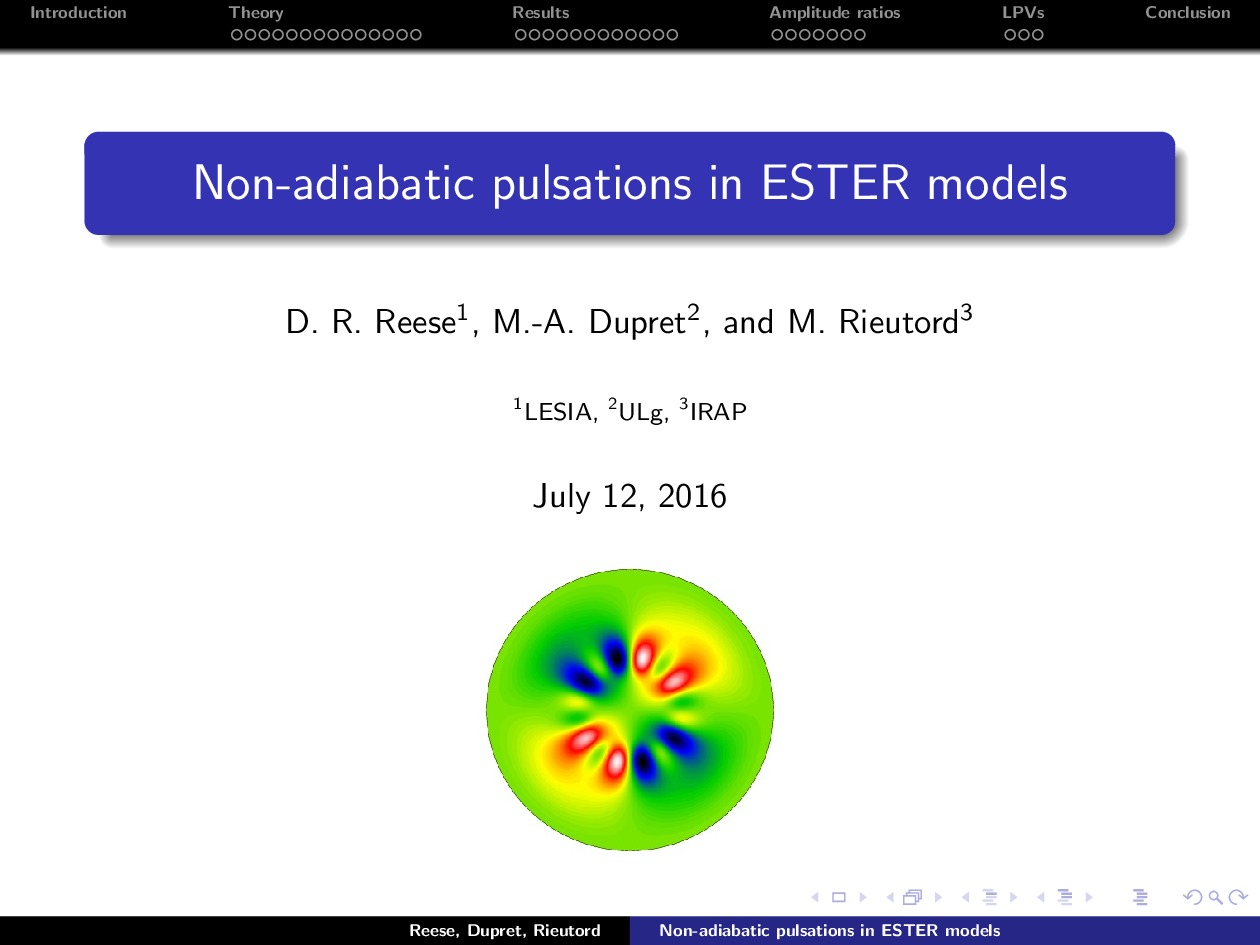Affiliation
LESIA, Paris Observatory
Main category
Natural Sciences (Astrophysics and Astrononmy)
Abstract
One of the greatest challenges in interpreting the pulsations of rapidly rotating stars is mode identification, i.e. correctly matching theoretical modes to observed pulsation frequencies. Indeed, the latest observations as well as current theoretical results show the complexity of pulsation spectra in such stars, and the lack of easily recognisable patterns. In the present contribution, I will describe the latest results on non-adiabatic effects in such pulsations, and show how these come into play when identifying modes. These calculations fully take into account the effects of rapid rotation, including centrifugal distortion, and are based on models from the ESTER project, currently the only rapidly rotating models in which thermal equilibrium, a prerequisite for calculating non-adiabatic effects, is achieved. Non-adiabatic effects determine which modes are excited and play a key role in the near-surface pulsation-induced temperature variations which intervene in multi-colour amplitude ratios and phase differences, as well as line profile variations.
Do you have problems viewing the pdf-file? Download presentation
here
If the presentation contains inappropriate content, please
report the presentation. You will be redirected to the landing page.
